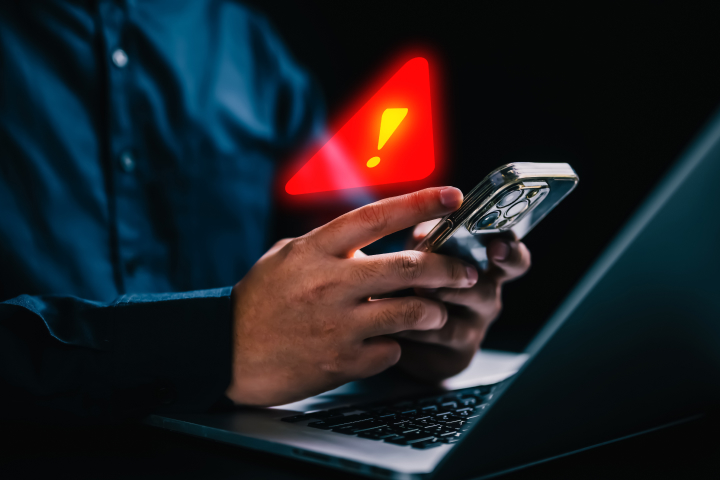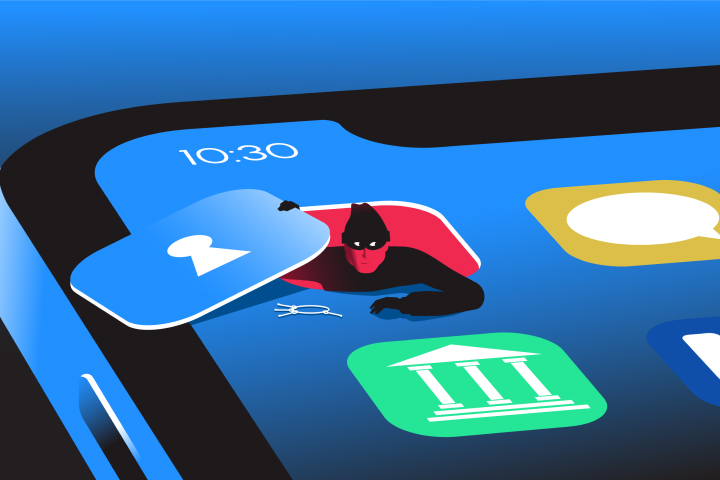Phone Number Exposures,
Leaks, and Breaches

A person’s phone number may not be someone’s first thought when they think about critical information. After all, our society used to function with huge, yellow directories, listing every phone number in a region, along with the owner’s full name and other details.
However, since then, the development of technology has pushed those directories mostly into obscurity, not because the Internet offers a faster way to find someone, but because phone numbers have become a hot target for online threats. Using only a phone number, a malicious actor can wreck someone’s life through impersonation, fraudulent activities, harassment, and countless other bad-news activities.
The Risks of an
Exposed Phone Number

In 2021, an AT&T data breach leaked 74 million phone numbers, that’s the impact of one breach. The breach leaked more than just phone numbers; it also exposed the victims’ names, addresses, Social Security Numbers, and dates of birth. Exposures like this are why we care about phone number exposures: where a phone number leak seems inconspicuous; it often means the event also leaked other information.
Phone number exposures can result in massive issues for a victim, which, when combined with the loss of additional credentials, can cause near irreparable problems, including:
-
Doxing Attacks, leading to harassment, online abuse, and blackmail.
-
Account Takeovers, leading to intercepted communications, 2FA/MFA bypasses, and impersonations.
-
Targeted Malware Attacks, leading to scams, viruses, and manipulative schemes.
-
Spoofed Caller IDs, leading to impersonations, financial manipulation, and fraudster activities.
-
Robotic Calls, leading to spam, malicious communications, and phishing texts.
How to Check if Your
Phone Number was Leaked

Many organizations will notify the victims of a breach, but there are caveats. For example, unless a data breach event impacts a few people, an organization may determine notification to be unnecessary, or the incident could impact thousands. The company may refuse to notify the victims if it is in a non-regulated location. For the average person, this means your number could already be available online, and there would be no way to know without checking.
IDStrong’s cybersecurity protection package monitors the dark web for your information. We scour the environment for indicators of your name, personal details, financial information, medical records, identifiable credentials, and phone number. Our scans allow you to protect yourself from online threats and help to mitigate the consequences of data misuse before they become unmanageable.
Steps to Take if Your Number is Exposed
Contact Your Mobile Service Provider
Let them know what’s up and request to set up a verbal passcode; this can help prevent you from falling victim to SIM swapping.
Notify Friends, Family, and Coworkers
If your number was exposed, tell all your connections so they can look out for strange behavior from your accounts.
Check Accounts for Suspicious Activity
Monitoring tools are an excellent way to oversee the activities within your accounts, especially if they are compromised.
Enable 2FA/MFA Settings
If not already active on your accounts, authorization settings help restrict the spread of a malicious actor’s reach, the more, the better.
Identity Theft Protection
If your phone number is compromised, your other private information may also be; identity protection can help mitigate the risks.
Shred Old Documents
Before throwing out mail and papers, shred them fine; this makes it almost impossible for a bad actor to gather information from your trash.
Regularly Check Credit Reports and Bank Statements
Itemized lists from your most essential institutions can be the difference between stopping misuse and being victimized by it.
Register with Do Not Call Lists
Add your number to the FTC’s National Do Not Call Registry; this limits the freedom of cold calls and allows you to start a report history.
Opt Out of Data Brokers
Some organizations have the right to offer information about you, at cost, including your number; luckily, we know how to deal with these entities. Removing your details from them limits online instances of your phone number, better protecting you from online threats. Follow our guides to opt out your information.
How IDStrong Works
1. Monitor
We continuously monitor your personal and financial information, scouring the dark web for potential threats, active data breaches, and network element leaks.
2. Alert
If we locate your information somewhere in the dark recesses of the Internet, we will instantly notify you, alerting you to any information leaked, exposed, or breached.
3. Resolve
We won’t just alert you of the dangers; we’ll help you resolve them. Our identity protection experts are available 24/7 to help you take the necessary actions to restore your identity and get back to normalcy.
Our Benefits
Identity Monitoring
Our business is monitoring billions of records on the dark web. If we find anything about your information, we alert you to the risks and offer recovery strategies.
Credit Monitoring
One of the essential elements of your identity is that we monitor your credit profile for suspicious inquiries, new loans, or credit-related changes. That means no surprises when it’s time to put a down payment on your dream home or car.
Privacy Monitoring
Personal information is the lifeblood of data brokers. They collect and sell it on a massive scale, and when your data is harvested online and neatly parceled into their systems, we allow you to remove it with a click.
Up to $1 million Identity Theft Insurance *
If you are a victim of ID theft, we’ve got you covered. We will cover up to $1 million for theft recovery expenses. If the worst happens, that gives you peace of mind and a financial safety net.
Lost Wallet Assistance
We’ve got you covered, even if your wallet is lost or stolen. We’ll provide quick, reliable help navigating the world of data defense and structure the best recovery options for your situation. Our experts walk you through the process step-by-step.
Identity Restoration
If you experience identity theft, our expert fraud resolution team will deliver personalized support; we’ll investigate the situation, recover what we can, and restore your identity to its rightful status.
* The Identity Theft Insurance is underwritten and administered by American Bankers Insurance Company of Florida, an Assurant company.
Please refer to the actual policies for terms, conditions, and exclusions of coverage. Coverage may not be available in all jurisdictions. Review the Summary of Benefits.
Frequently Asked Questions About
Phone Number Leaks
My Phone Number was Leaked in a Breach; Is It on the Dark Web Now?
If your phone number was exposed in a data breach event, it may have fallen into the hands of a cybercriminal. What the criminal does with it next depends on their ultimate goal; if they’re looking for a quick profit, they might sell it (along with the rest of your information) on the dark web or use it to further other schemes.
No matter what they have in mind for your data, if it’s in the hands of a malicious actor, you’ll need to take action to protect yourself and those around you.
Will Businesses Notify Me After My Information is Leaked?
When a data breach occurs, the organization is responsible for notifying individuals; however, this doesn’t mean companies will notify victims in every instance of a leak. There are no federal regulations overseeing these breach notifications. Unless the breach involves individuals from specific states with compliance regulations (like Maine or Texas), there is always a chance that the organization doesn’t notify the victims following the exposure of their data.
To make things even more complicated, organizations can self-determine an exposure to be “not of significance” and, subsequently, do not legally have to notify victims. Legislatures around these issues are changing, but until there is a federal blanket about notifying breach victims, your phone number and information could be out there, and you’d never know.
How Can I Protect My New Phone Number from Exposures?
Phone numbers and email addresses are easily protected. Still, it can be challenging to maintain their confidentiality long-term, especially if you’re submitting the information to multiple organizations, like when searching for a new employment opportunity or making dating profiles.
The easiest way to protect the integrity of a phone number (or email address) is by using masking features or decoy accounts. Once a new mask is created for your phone number, submit that decoy in place of your authentic details.
Someone is Revealing My Phone Number Online; What Should I Do?
Depending on the circumstances, it could be illegal if someone reveals your information online. If the exposure happened by accident, politely ask that they remove whatever media was leaked or speak with the website administrators about removing it.
However, if the leak happened maliciously, as in the event of doxing or other premeditated harassment, consider speaking with the administrators and authorities about the exposure. Moreover, contact your communications provider about the leak; you can request access passwords on the account, which stops threat actors from impersonating you (at least when speaking with your provider).
I Got a New Phone Number and Now It’s On a Data Broker Site; What Gives?
Suppose you’ve obtained a new phone number and used it to create an account or receive a passcode to an organization’s platform. In that case, it’s only a matter of time before the number is associated with you and subsequently added to a data broker website. Data brokers have legal access to data from many organizations, including healthcare databases, government agencies, arresting clerks, and everything in between.
The vast reach of these brokers accounts for how they obtain so much information about a person, not to mention that they tend to share data between their affiliates. We suggest taking the time to opt out of these brokers; in most cases, the request process takes less than ten minutes and is always free.




